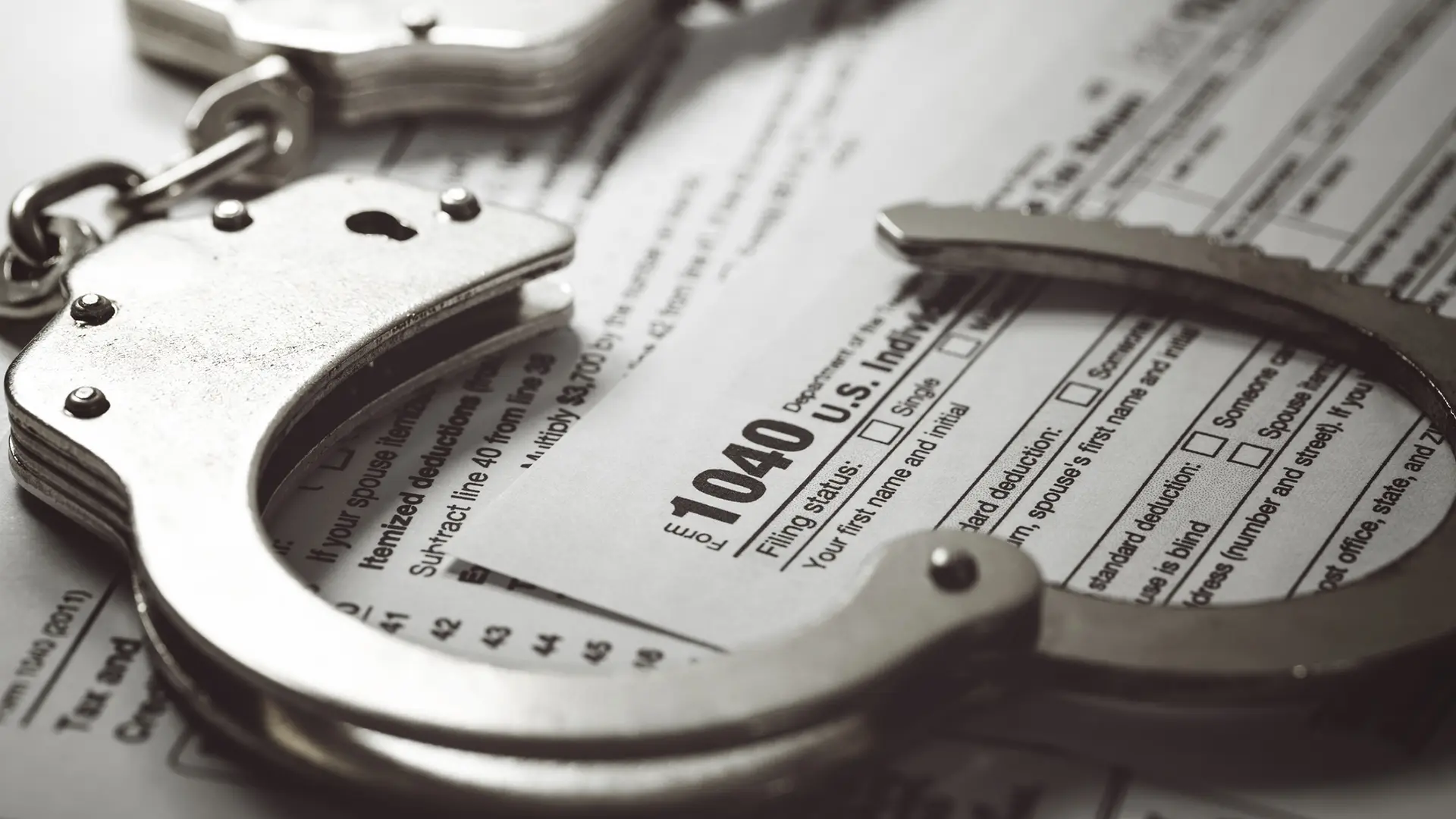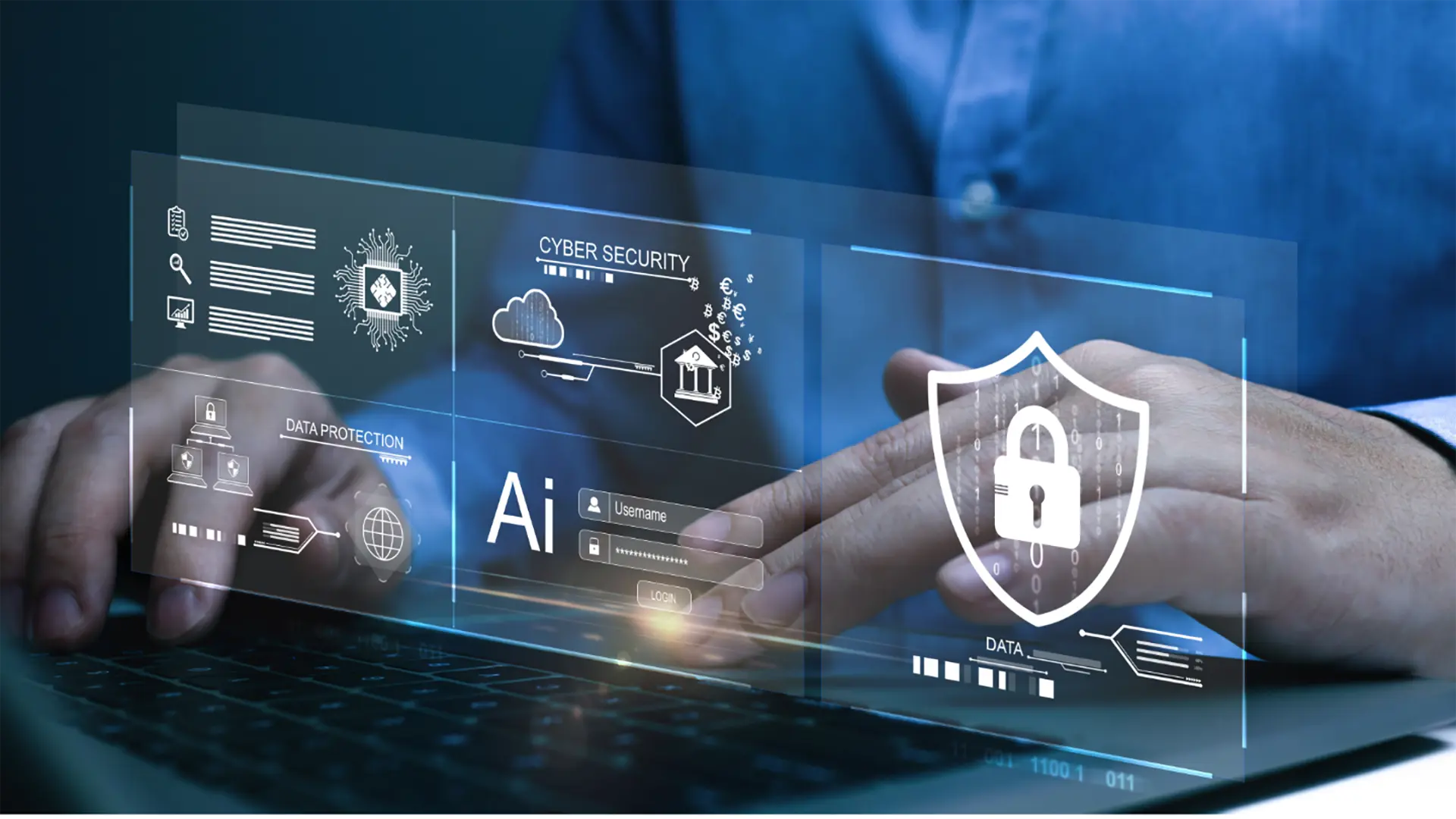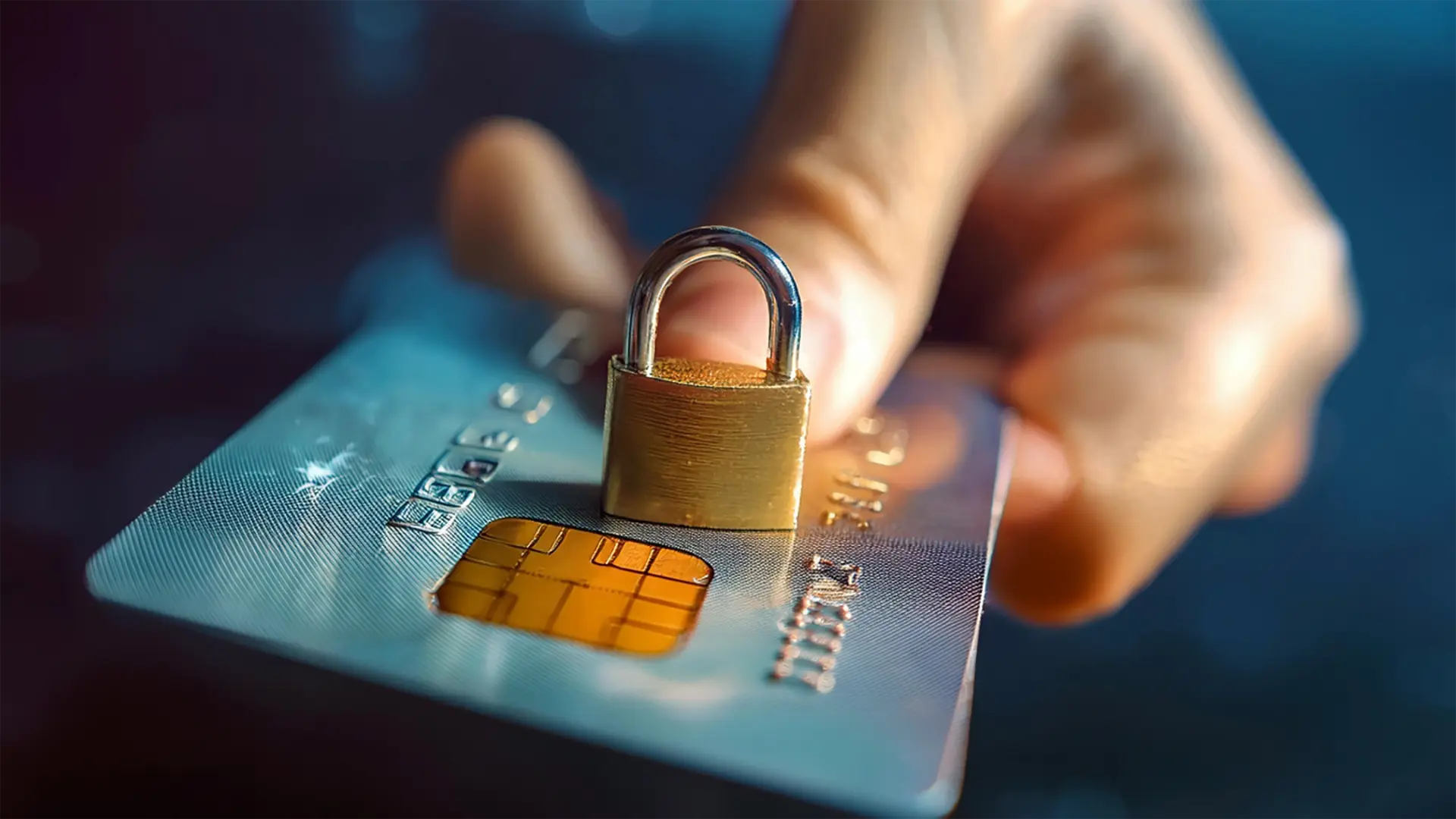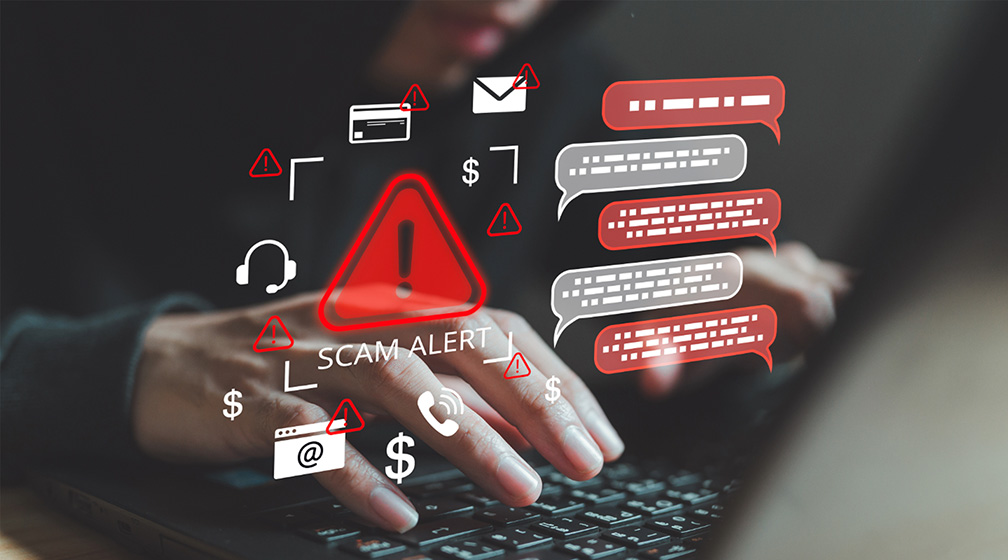
PayPal was founded in 1998, making it one of the older peer-to-peer digital payment solutions still in use today. The platform’s long history and trusted reputation have helped it maintain popularity among users over the years.
But PayPal’s wide usage also makes it a common target for scammers, with scams recently surging: McAfee reported a 700% rise in PayPal-related scams from January to February this year. If you use PayPal, it’s important to know the common signs of a scam, and how to keep yourself (and your money) safe.
Common PayPal Scams to Watch Out For
Here are some of the most common types of PayPal scams:
Fake PayPal Messages
Scammers may send you an email or text message that appears to come from PayPal, claiming there is a problem with your PayPal account or referencing a payment that never actually occurred. The scammer wants you to click a link, download an attachment, send a payment, or perform some other action that compromises your account, your finances, or your identity.
Accidental Payments or Overpayment Scams
If you unexpectedly receive money from a stranger who asks you to return the “accidental” payment, don’t comply. The scammer may have used a stolen credit card to pay you, and they aim to keep the funds you send back for themselves.
Another version of this scam is the “overpayment” scam, where someone sends you more money than you requested to complete a transaction. If you return the “extra” funds, you could find yourself out of luck when the original payment gets reversed due to fraud.
PayPal Invoice Scams
Pennsylvania’s Attorney General recently issued a warning about a rising PayPal scam where scammers send fake invoices or money requests to users. When you call the number in the message or the invoice, the scammer will attempt to trick you into providing personally identifiable information (PII) that can be used for identity theft.
Buyer and Seller Scams
There are many types of buyer and seller scams:
- Fake Product Listings: The scammer creates a fake listing for a product that doesn’t exist, then keeps your money when you pay for it.
- Fake Buyers.:The scammer asks to buy an item you listed online, then sends you a fake PayPal message claiming that you were paid. The goal is to get you to ship the item without noticing you didn’t receive any money.
- Shipping Scams: A buyer contacts you to purchase something you listed online, but asks you to use their personal shipping account or prepaid shipping label. Then they reroute the package somewhere else and claim they never received the item to get a refund.
Romance Scams
Scammers use dating apps and romance websites to trick users into sending money. They might claim to have romantic interest in you, but they really want you to send them money or provide PII that they can use for fraud.
Investment Scams
Scammers may pretend to be financial experts, investors, or business owners who can quickly turn around an initial investment for a profit. But they’ll keep the money you send them or quickly flip a small profit to gain your trust and get you to fork over a larger sum.
Device Hacking
In an ongoing scam, criminals are sending emails with fake purchase notifications to trick users into granting access to their devices. When you contact a fake support number, the scammer will ask you to download software which gives them control of your computer.
Account Hacking
If someone manages to trick you into providing your login details, they can gain access to your account. They can initiate fraudulent transactions and even empty your account to line their own pockets.
Red Flags for PayPal Scams
Here are some common warning signs that you might be getting scammed:
- Messages with a Sense of Urgency: Scammers want you to quickly act without thinking, so scam emails and messages often claim that urgent action is necessary.
- Requests for Sensitive Information: Requests for your login credentials, security codes, or other PII – such as your SSN – are likely part of a scam.
- Unexpected Payments: People don’t generally send you money for no reason. If a stranger sends you an unexpected payment, it could be the first step in a scam.
- The Offer Appears Too Good to Be True: Look out for claims of free money, sweepstakes winnings, and other random acts of good luck or generosity.
- Emails with Red Flags: If you get an email from PayPal or another official party, look for signs that the email could be fake, including:
- Domain names that don’t match PayPal’s website
- Requests to click links or download attachments
- Spelling or grammatical errors
- Generic greetings like “Dear User” or “Dear PayPal Customer”
- Domain names that don’t match PayPal’s website
What to Do If You Get Encounter PayPal Scams
Take the following steps if you come across a scam:
- Report Scams to PayPal: You can report fraud to the PayPal Resolution Center from your PayPal account. Forward suspicious emails and texts to phishing@paypal.com, then block the sender.
- Report Fraudulent Transactions: Report any unauthorized transactions to PayPal and the financial institution that is linked to your PayPal account. Keep checking your accounts for fraudulent activity.
- Report Fraud to the Federal Trade Commission (FTC) and the Police: Reporting scams to the government and the authorities can help you fight fraud and untangle issues related to identity theft.
- Enable PayPal Security Features: Turn on the following security settings:
- Two-factor authentication
- PIN codes for login
- Update Your Passwords: Change your PayPal password, as well as the passwords for any other account that could be affected. Use a password manager to create unique passwords for your accounts.
- Get Identity Protection: Sign up with an identity protection service like IdentityIQ to get alerts whenever someone tries to commit identity theft using your name, and gain access to tools that help you prevent fraud.
PayPal Scams FAQs
Does PayPal protect against scams?
PayPal offers buyer protections, fraud monitoring, and data encryption to guard against scams. These features are not 100% foolproof, so continue to practice caution.
Will PayPal refund me if I get scammed?
In some cases, PayPal may refund you if you get scammed. Purchase Protection can refund you the full price of an item, plus shipping costs, if you don’t receive your item from a seller or you receive an item that wasn’t what you ordered.
Can someone access your bank account through PayPal?
PayPal does not provide sensitive information like your bank account number to other users. If someone managed to gain access to your PayPal account, they could potentially use it to initiate transactions from your linked bank account.
Can a scammer take money from your PayPal account?
Scammers can’t take money from your PayPal account without your cooperation, unless they manage to gain access to your account.
How to Report PayPal Scams
Here’s how to report a scam to PayPal:
- Report fraud to the PayPal Resolution Center right from your PayPal account.
- Forward suspicious emails, texts, or SMS messages to phishing@paypal.com. Delete the messages after you forward them and block the sender. Do not alter the subject line or forward the email as an attachment.
- Call PayPal Customer support at 1-888-221-1161.
- Provide details about the scam so PayPal can identify the user and the transactions involved.
How to Protect Yourself from PayPal Scams
Here are some of the best methods to protect your PayPal account from scammers:
- Only use PayPal with people you know. If you use PayPal to conduct business, avoiding transactions with strangers isn’t always possible. But if you can, limit your usage to sending money to friends, family, and people you trust.
- Use two-factor authentication (2FA). Set up 2FA in your PayPal account to get an extra layer of security when logging in.
- Use PayPal Purchase Protection. When you buy something using PayPal, make sure to select “Goods and Services” as the payment type. You get additional protection and can receive a refund if the item never shows up or isn’t what you thought it was.
- Don’t trust unsolicited messages. If you receive a message from PayPal asking you to perform some action, don’t trust that it’s legitimate. Contact PayPal through their official channels if you have questions. Don’t click links or download attachments.
- Monitor your PayPal account. Make sure to monitor your PayPal account and review transactions to look for suspicious activity.
How IdentityIQ Helps Protect You From Scams
Criminals are unlikely to stop targeting PayPal users, so you need to stay vigilant to avoid scams. IdentityIQ can give you digital tools to keep yourself safe online and monitor your identity to look out for signs of identity theft. If you do get scammed, our fraud resolution team can help you quickly recover.
Using PayPal Safely
PayPal’s popularity makes it a prime target for scams, from phishing emails to overpayment scams and beyond. Scammers have developed increasingly sophisticated methods, so it’s important to watch out for red flags and avoid fraud. If you do get scammed, respond quickly to report fraud and recover.
Sign up for IdentityIQ now to receive comprehensive fraud protection, including industry-leading identity theft restoration services, real-time credit report and dark web monitoring, and more.







